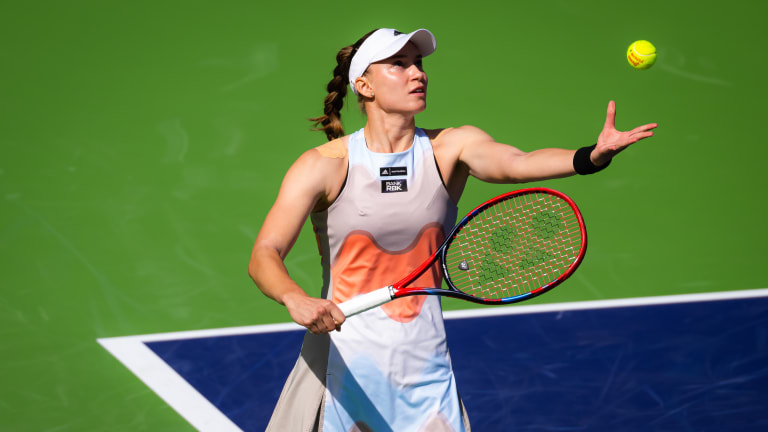Indian Wells, USA
Elena Rybakina on Iga Swiatek rematch: “If I’m going to bring my best tomorrow, there’s chances I’m going to win”
By Mar 17, 2023Indian Wells, USA
Mackenzie McDonald is paying the college tennis experience forward with a new fund
By Mar 17, 2025Indian Wells, USA
Mirra Andreeva and Jack Draper win breakthrough titles at Indian Wells: What did we just witness?
By Mar 17, 2025Indian Wells, USA
Jack Draper's run through Indian Wells concludes with his first ATP Masters 1000 title
By Mar 16, 2025Indian Wells, USA
Holger Rune vs. Jack Draper: Where to Watch, Indian Wells Preview, Betting Odds
By Mar 16, 2025Indian Wells, USA
Holger Rune reaches first Indian Wells final over Daniil Medvedev
By Mar 15, 2025Indian Wells, USA
Mirra Andreeva vs. Aryna Sabalenka: Where to Watch, Indian Wells Preview, Betting Odds
By Mar 15, 2025Indian Wells, USA
Mirra Andreeva, 17, advances to Indian Wells final, beating Iga Swiatek in chilly conditions
By Mar 15, 2025Indian Wells, USA
Ruthless Aryna Sabalenka storms past Madison Keys, 6-0, 6-1, in semifinals of Indian Wells
By Mar 15, 2025Indian Wells, USA
Carlos Alcaraz vs. Jack Draper: Where to Watch, Indian Wells Preview, Betting Odds
By Mar 15, 2025Indian Wells, USA
Elena Rybakina on Iga Swiatek rematch: “If I’m going to bring my best tomorrow, there’s chances I’m going to win”
The Wimbledon champion has survived slow courts, windy conditions, and a big fight from Karolina Muchova to reach her first WTA 1000 semifinal in Indian Wells.
Published Mar 17, 2023
Advertising
Advertising
Advertising

Rybakina is rounding into a late-round threat wherever she plays.
© 2023 Robert Prange
